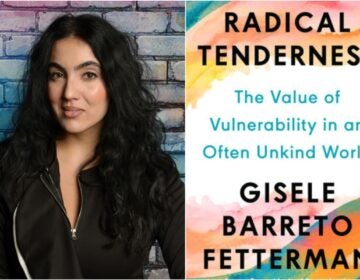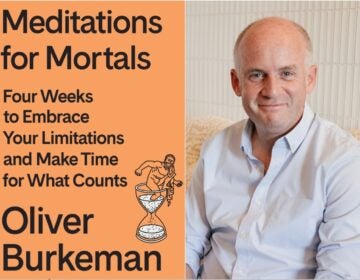A close shave with American attitudes

(Max2/Bigstock)
Do you remember Art Linkletter?
I do. I came to this country more than 60 years ago, in the good old days of America, days that “Make America Great Again” folks yearn to relive.
Television was still in its infancy then, and Linkletter’s show was my first exposure to TV and American culture.
A college grad from Taiwan, I attended graduate school at the University of Oregon in Eugene in 1957, living in the cheapest lodging I could find — a girls’ co-op house.
The television set in the living room of that co-op was often tuned to the popular Art Linkletter show, which initiated the use of audience participation. One of Linkletter’s favorite ploys was to ask young children what they wanted to be when they grew up.
While the boys’ answers ranged from garbage man to doctors, the girls were unanimous in their singular desire: to be married and have a lot of kids. (The number of children they wanted did vary, however, roughly from five to eight.)
My jaw hit the floor.
Back in Taiwan, we viewed America as the greatest nation in the world, the most prosperous and progressive, leading in values and knowing all the answers. How could American children — and the rest of the society by extension — seem to be stuck in gender roles of the 19th century?
My fellow co-op residents seemed to agree with those little girls. They were in college, but most majored in subjects such as home economics, education, and nursing. To them, finding a husband seemed far more important than earning a diploma.
The only foreign student in the house, I had just graduated from law school in Taiwan, where women made up 10 percent of my class. Admittedly, 10 percent is far from half, but it’s better than 1 percent or nil. In fact, at that time, you’d be hard put to find any American women studying medicine, law, science, or engineering.
I was therefore delighted when I discovered that one of my roommates, Lois, was a pre-law major. With a quick, logical, and analytical mind, Lois seemed to be well-suited for law. While most 18-year-old girls were worrying about what to wear on their next date, Lois was interested in policy. I assumed that her ambition was to pursue a career in law or politics.
But no, her plans were identical to those of other girls — to get married and have lots of kids.
Those were easily accomplished goals, but I did see a problem: Lois just wasn’t very feminine. She smoked, drank, drove like a fiend, and began every sentence with “Boy, I’ll tell ya!” Her devil-may-care attitude could easily repel members of the opposite sex.
On the other hand, it was not entirely correct to say she had a devil-may-care attitude. There was one thing for which Lois did care, and cared very deeply: shaving her legs.
She seemed to turn into a different person when she brought out her ultra-fancy shaving kit every two or three days. From applying shaving cream, to meticulously eradicating each and every hair, to rubbing on moisturizer, the entire operation took a good hour and half from start to finish.
And Lois was totally absorbed in the process, her movements so gentle, tender, even reverent, as if her happiness, her lofty goal of getting married and having a lot of kids, hinged upon this crucial task.
One night while slaving over her legs, Lois suddenly asked me, “Gee, how come I’ve never seen you shave your legs?”
I was taken aback, but I had to admit that she had never seen it because I had never shaved my legs in my life.
You should have seen her. Her innocent, blue-green eyes grew wide, her razor fell to the floor, and she even forgot to say “Boy, I’ll tell ya!” You’d have thought she had just spotted an alien alighting from a UFO.
I thought, I’m Chinese, a member of a highly evolved race, not a Caucasian covered with hair. But I was too polite to say it to her face.
“I don’t feel … I need…” As soon as the words began to leave my mouth, I knew I had made a mistake.
The usually articulate Lois suddenly assumed the air of a person from a civilized nation in the wild. She was at a loss as to how to bring the natives up to her level — this barbarian simply couldn’t understand the importance of keeping her legs free of hair.
I was offended by her attitude of superiority and decided to let her have it: “Because I don’t need to shave like you do!”
Convinced I was bluffing or messing with her, Lois dashed over to examine the evidence.
“Jesus Christ!” she exclaimed. “She doesn’t have any hair on her legs!”
I transferred to another university after a year and lost touch with Lois shortly afterward. Six decades have gone by. In the interim, I got married, raised two kids of my own, became a bilingual writer, and — despite occasional incidents like the one with Lois — eventually learned to call America home.
However, my sense of belonging suffered a rude awakening two years ago, when “immigrant” suddenly became a dirty word. I started to think of my little cultural exchange with Lois and wonder how she is today. Did she go to law school and become a lawyer, or did she get married and raised a lot of kids, or both?
Is she still shaving her legs religiously, as she did more than 60 years ago?
I doubt it.
For change is the only constant in life, and no one can avoid it. Even America the nation, for better or for worse, is not the same.
Those who espouse anti-immigrant rhetoric — or subscribe to its sentiment — fail to understand that a pond without rain will remain a body of dead water.
And short of a time machine, nobody can go back to the “good old days” of the 1950s. History is forever marching forward. Can we, should we try to yank it backwards?
Annabel Liu came to this land on a freighter in 1957. A bilingual writer, she has published three memoirs in English, “My Years as Chang Tsen: Two Wars, One Childhood” (second edition); “Under the Towering Tree: A Daughter’s Memoir”; and “Where Chopsticks Meet Apple Pie: Cross-cultural Musings on Life, Family, and Food.” She has also published a novel and seven collections of essays and short stories in Chinese.
WHYY is your source for fact-based, in-depth journalism and information. As a nonprofit organization, we rely on financial support from readers like you. Please give today.




